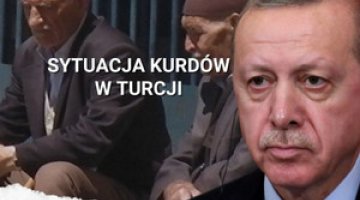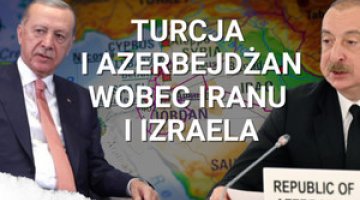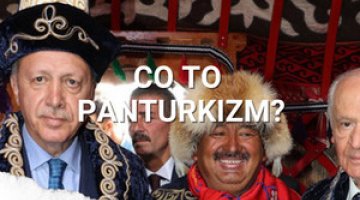The PKK’s attack heralds an escalation of tensions over the Kurdish question
On 23 October, in the municipality of Kahramankazan – located in the suburbs of Ankara – a terrorist attack targeted the headquarters of the TUSAŞ, an armaments company that manufactures various flight platforms for the Turkish air force. Turkey’s defence minister has accused the Kurdistan Workers’ Party (PKK) of perpetrating this attack, resulting in the deaths of 5 people and injuries to 22 others. The act of terror was strongly condemned by the Turkish government, ruling parties, and the Kurdish Peoples’ Equality and Democracy Party (DEM), including its informal leader Selahattin Demirtaş, who is currently imprisoned. However, the DEM refrained from directly condemning the PKK itself. The attack was also denounced by the US Secretary of State, the Secretary General of NATO, the EU’s High Representative, and other prominent figures. In response, Turkey conducted at least 32 air strikes on PKK-linked targets in Syria and Iraq on the night of 23/24 October.
This terrorist attack in Ankara represents the PKK’s attempt to derail recent efforts towards the normalisation of Turkish-Kurdish relations, which were under consideration in recent weeks and would inevitably provoke divisions among the Kurds and marginalise the PKK. The initial response from the Kurdish opposition (DEM) is ambiguous. It is anticipated that Turkey’s military operations against PKK targets in Iraq and Syria will escalate, as will the PKK’s terrorist attacks, leading to increased repression and clashes within Turkey.
Commentary
- The asymmetrical conflict between the PKK and the Republic of Turkey has persisted since the 1980s and, from Ankara’s perspective, represents the most serious ongoing threat to state security. The PKK is a Kurdish organisation recognised as a terrorist entity by NATO, the EU, and other countries and organisations. Its main bases are located in Iraq (notably the Qandil mountains) and northern Syria, where it exerts at least indirect control over the local informal Kurdish autonomy (referred to as Rojava). The organisation’s activities, which many Kurds living in Turkey view as extremist and highly controversial, reflect the national minority’s frustration over a perceived lack of respect for their rights, compounded by state repression targeting individuals suspected of PKK links. Turkey regularly strikes PKK targets abroad and has persistently demanded the organisation’s complete eradication. The PKK, for its part, engages in acts of sabotage within Turkey and organises terrorist attacks with varying intensity (such as the attack on the Turkish interior ministry in October 2023).
- Previous attempts to resolve the Kurdish question through political and social measures have proved unsuccessful. Both the ruling AKP initiatives to liberalise state policy towards the Kurds (2009–14) and the negotiations with the PKK (2009–12) failed to produce a breakthrough, partly due to limited mutual trust and changes affecting both sides, which were triggered by the civil war in Syria. The primary Kurdish party – currently the DEM (57 out of 600 seats in parliament), formerly the HDP – ideologically and historically aligns with the PKK’s traditions. It aims to appeal to Kurdish groups which are similar to the PKK’s supporters yet seeks to distance itself from close ties with the PKK and from terrorism. Thus far, this political force’s attempts to engage in dialogue with the Turkish leadership have exposed it to PKK retaliation and the risk of friction within its own electorate. During periods of increased tension (e.g. in 2015–16), the party’s failure to distance itself from the PKK led to government repression, including the imprisonment of its leader, Selahattin Demirtaş. In recent weeks, despite Turkey’s ongoing military operations in Iraq and Syria, the Turkish government has signalled a willingness to participate in talks on normalising the Kurdish question, extending a series of positive gestures towards the DEM. In doing so, it has shown an openness to involving the imprisoned leaders of the PKK (Abdullah Öcalan) and the HDP (Selahattin Demirtaş) in the process.
- The PKK’s likely aim in launching these attacks appears to be the disruption of the government’s attempts to renew dialogue with Kurdish political groups. As in many similar past events, the attack has consolidated the political elite and society, isolated the Kurds and the DEM thus forcing them to adopt a clear stance condemning not only the attack itself but also the PKK. Historically, the HDP was unable to take such a stance, which contributed to its marginalisation on the Turkish political scene and led to repression. If the DEM fails to react strongly, it is likely to face ostracism and potential retaliation against its members from the state. In similar situations in the past, it was threatened with delegalisation. Should it announce its separation from the PKK, this could create tensions within the party and among the Kurdish electorate, potentially triggering a direct conflict with the PKK. Nonetheless, it remains possible that the DEM (or a faction within it) may accept the risks associated with participating in talks with the government. However, the involvement of Demirtaş or Öcalan in the negotiations would be crucial for this scenario to materialise.
- The PKK’s attack has exacerbated the situation in the Middle East. It is likely that terrorist attacks will intensify within Turkey and that Ankara will increase its strikes on PKK bases in Iraq and Syria. Any such actions by Turkey will heighten tensions in its relations with the US and Russia, as both countries support forces in Syria that according to Ankara, have ties with the PKK. This is likely to prompt Turkey to engage in dialogue with both Washington and Moscow. Furthermore, given Iran’s influence and ambitions in Iraq and Syria, along with the intensifying Iran-Israel confrontation destabilising the entire region, there is an increased risk of friction between Ankara and Tehran.





